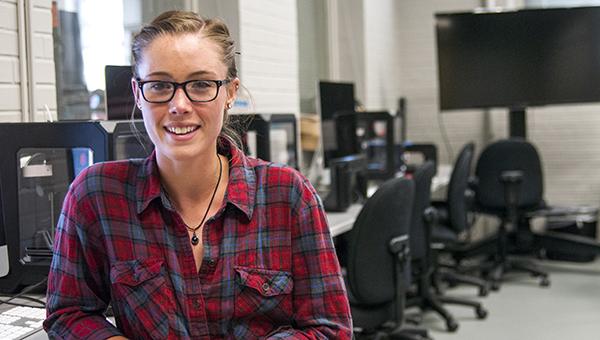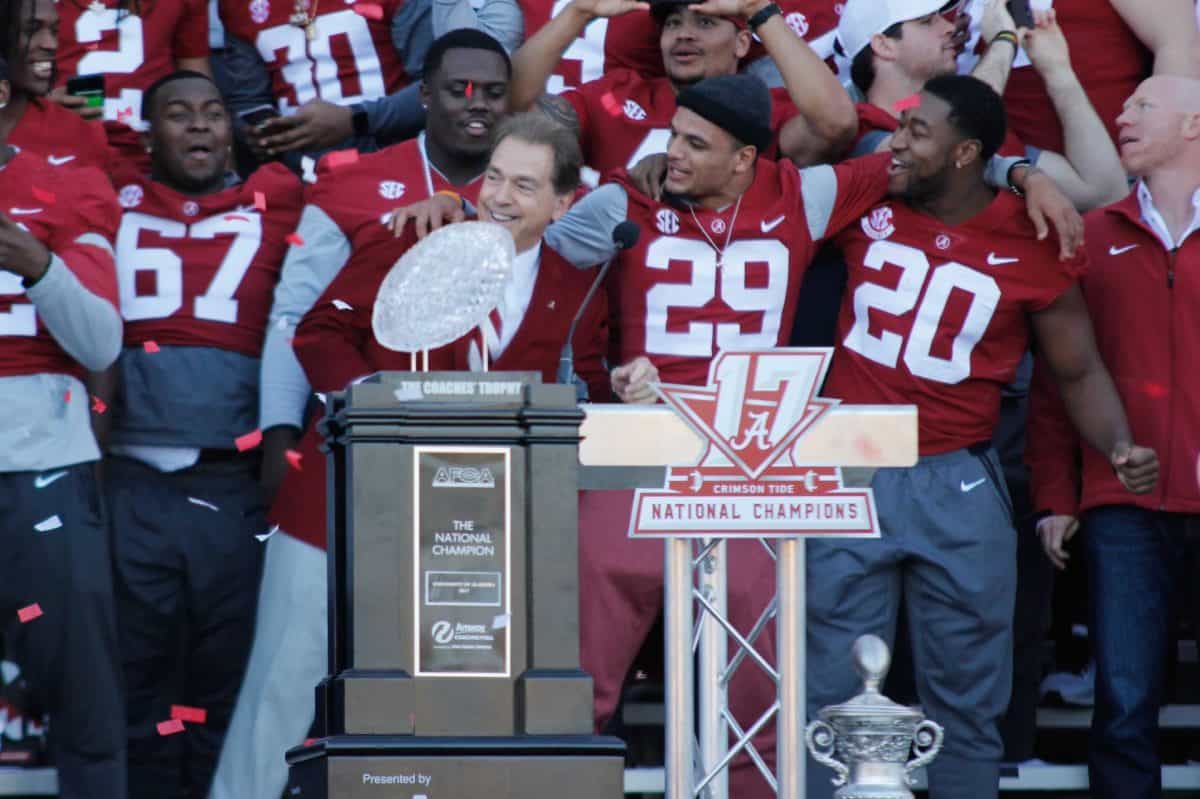The two, both juniors majoring in electrical engineering, are a part of a minority at The University of Alabama – women studying engineering, and moreover, women remaining within the College of Engineering past their freshman year.
“I’ve been in class before and been the only girl. Not on the roster, but just in class that day. That was different, but it doesn’t make you feel uncomfortable or anything,” Foust said.
Foust and Smallwood have found other women within their major to befriend, though the two said they’ve inevitably had to face a stereotype that women belong to a different kind of major.
“I feel like girls have to work harder in order to prove ‘Hey, we can do this,’” Smallwood said. “Whereas with guys, if they fail out, it’s no big deal, but if a girl fails out, what are you going to do?”
Beth Todd, faculty advisor for Society of Women Engineers (SWE) and also the undergraduate program coordinator in the department of mechanical engineering, said young women often do not gravitate to engineering majors because many are not engaged in strong science programs at a young age or do not view engineering as a typical caregiving field.
“Where we have to sell engineering is in our explanation that in the practice of engineering, there are lots of opportunities to be caring and nurturing,” Todd said.
Smallwood said she chose to pursue engineering because it benefits society as a whole, though many view it as simply calculating formulas and running experiments.
“Engineering is more than you think,” Smallwood said. “It’s being able to assess what a problem is and communicate with people to see what you need to do. It’s not just two plus two is some square root.”
For example, Foust hopes to work with medical equipment after graduation. Should a power failure occur at a hospital, an electrical engineer like Foust would work to fix the issue, potentially saving lives that were dependent on medical machinery.
According to Women, Minorities, and Persons with Disabilities in Science and Engineering, a website that calculates statistics on the number of women in engineering programs, the enrollment of women studying engineering in 2001 was 78,468, compared to 331,089 male enrollees. In 2011, the number of women increased to 87,825, and male participation was 384,095, which means for every four male students in engineering programs, there is only one female student. Over the 10-year-span, women saw an 11.9 percent increase in enrollment compared to a 16 percent increase in men enrollment.
For students who are minorities within their majors, being the minority is not always a negative thing. Todd said professors should recognize female students’ names more readily when they’re alongside an extensive list of male students. She also said disadvantages tend to be within a social sphere.
“Sometimes you feel lonely,” Todd said. “Here we have the advantage that most all of us enjoy football, but there may be something you want to talk about with another woman, but everyone in your class is male.”
At the University of Alabama, female engineering students can seek the acquaintance of other female engineers in the Society of Women Engineers (SWE), a national organization founded in 1950, which serves to increase the awareness of engineering as a career option for women and to integrate women into the profession more easily.
Todd said the retention of SWE members in the College of Engineering is above 85 percent for a variety of reasons. She said freshmen in the organization are more likely to be retained. Todd joined SWE when she was a freshman at Penn State University and has since worked to grow the organization in Tuscaloosa.
“SWE is great because, the way the meetings are set up, you get to just talk to everybody and have a lot of bonding time,” said Gabrielle Hance, a senior majoring in environmental studies and chemical engineering and vice president of community outreach for SWE.
SWE offers mentor programs in the College of Engineering along with outreach programs for Tuscaloosa county schools. Hance said the goal of outreach is to influence students from a young age to pursue math, science and eventually engineering.
According to a study by the Assessing Women and Men in Engineering Project in 2005 entitled “Family Influence on Engineering Students,” most female engineering students follow the path of their parents more prominently than male engineering students. For Foust, this reigns true. Her parents are both engineers, and she said they have had the biggest influence on her interest in science and math.
Lauren Howell, a sophomore majoring in aerospace engineering, is from West Virginia, an area she said lacks extensive engineering programs. However, her high school offered an after-school program called Real World Design Challenge, a program she cites as being crucial to propelling her career pursuits in aerospace engineering. Howell recently received NASA’s National Aeronautics Scholarship.
“In order to succeed in engineering, you have to be really self-motivated, regardless of where your influences come from,” Howell said. “I feel like I have an advantage because my desire to succeed in engineering is based on only myself instead of the actions or desires of those around me. It’s something I know that I want.”
Recent admissions in the College of Engineering are changing the ratio of male to female students and faculty. Todd said this is important because she thinks the profession should reflect the demographics of society.
“Engineers tend to be paid more, and I think that’s important for women as they go through their life that they can be financially independent,” Todd said. “And as an engineer, I think it’s fun, and I’d like to share that with women as well as with the men.”
Smallwood said she admits electrical engineering is a hard major, though she maintains anyone with determination could enter the field.
“It’s easy to lose your drive when you could just marry an engineer, but it pushes me to do engineering because I actually want to do it and work for it,” Smallwood said. “Don’t let it discourage you – I honestly believe anyone can do engineering if you know you can work hard. If you want to do it, there’s nothing that can stop you from becoming it.”
Statistical information source:
http://www.nsf.gov/statistics/wmpd/2013/
PDF of “Family Influence on Engineering Students” from AWE Project 2005.







